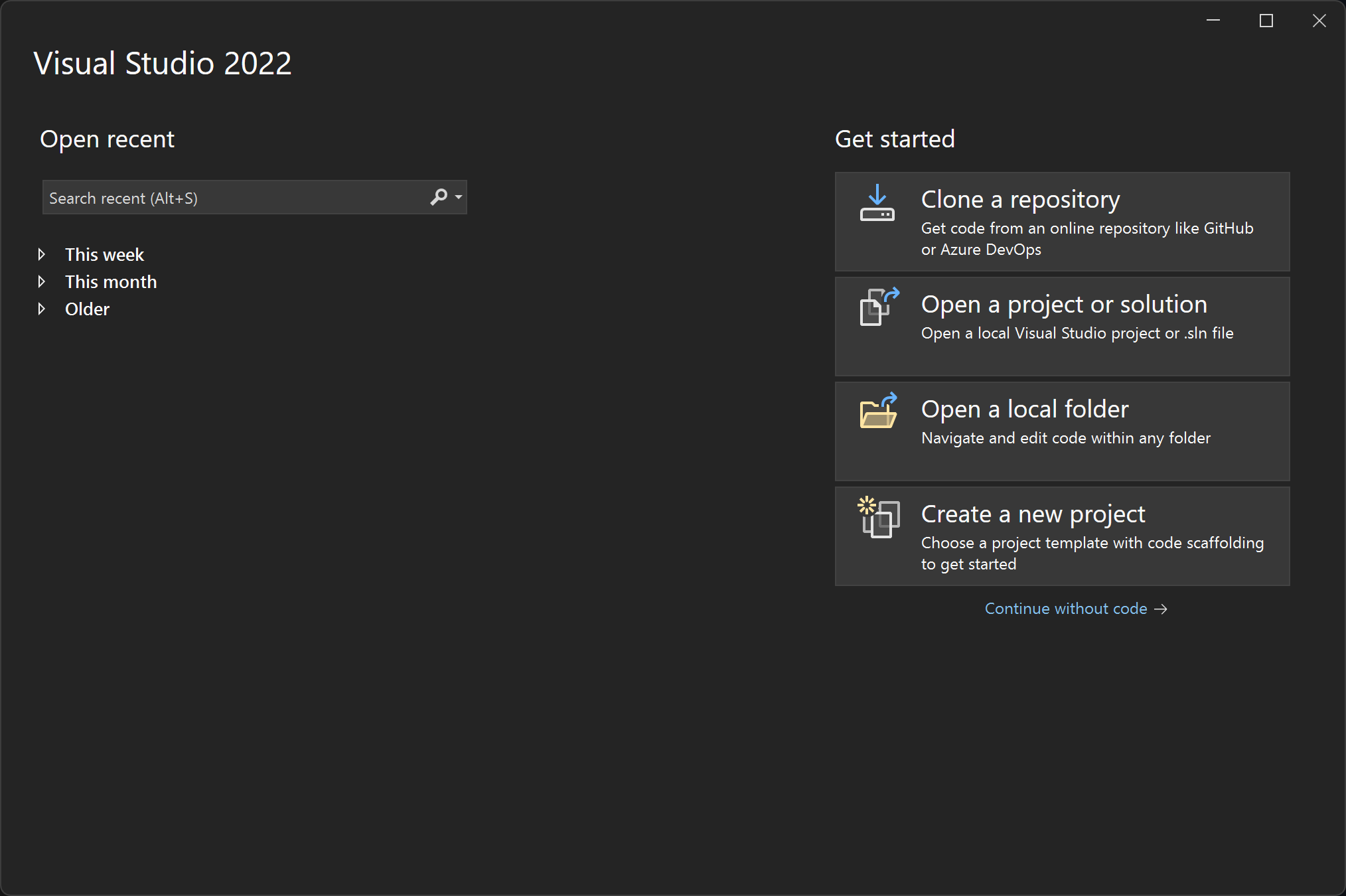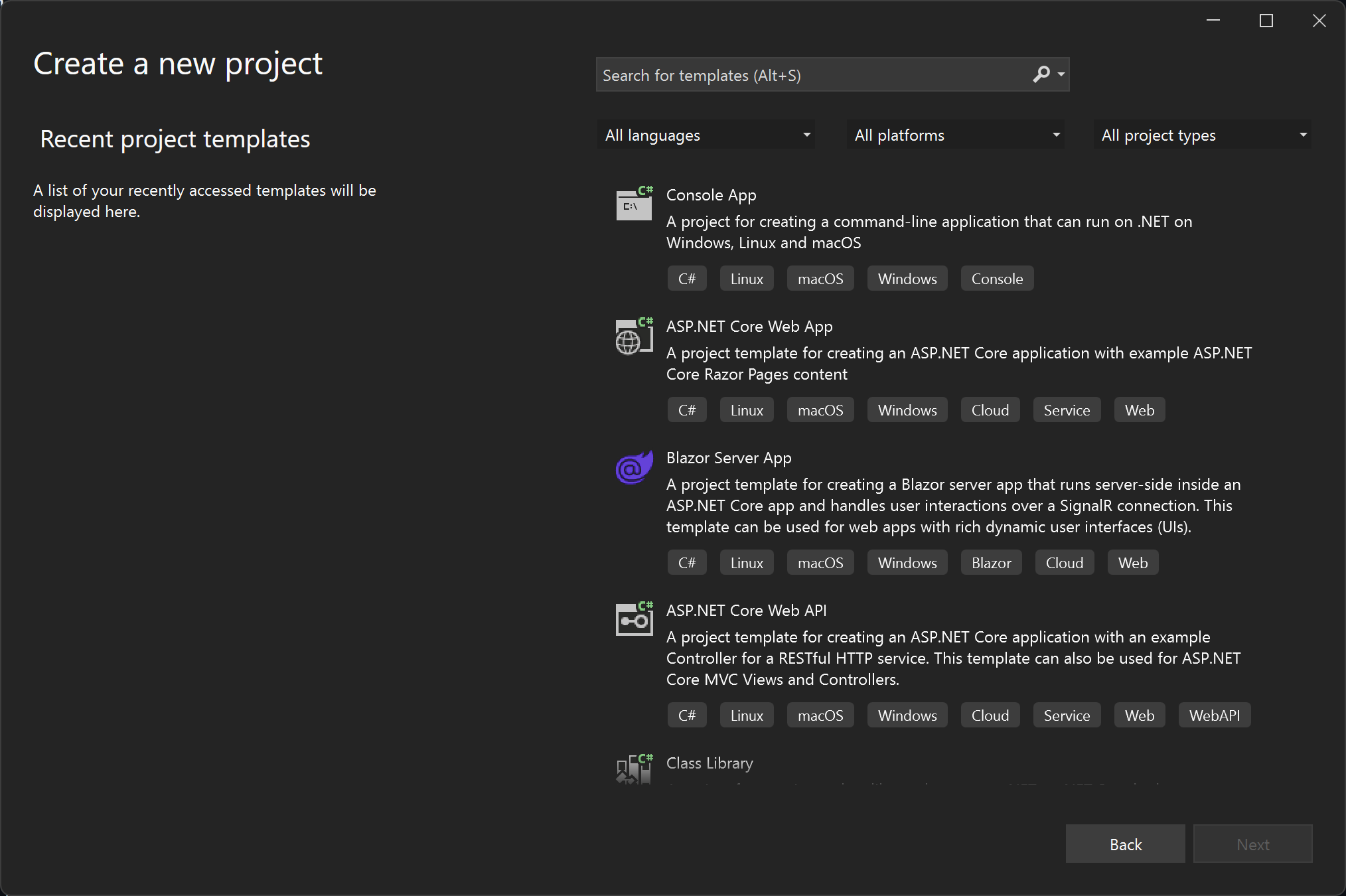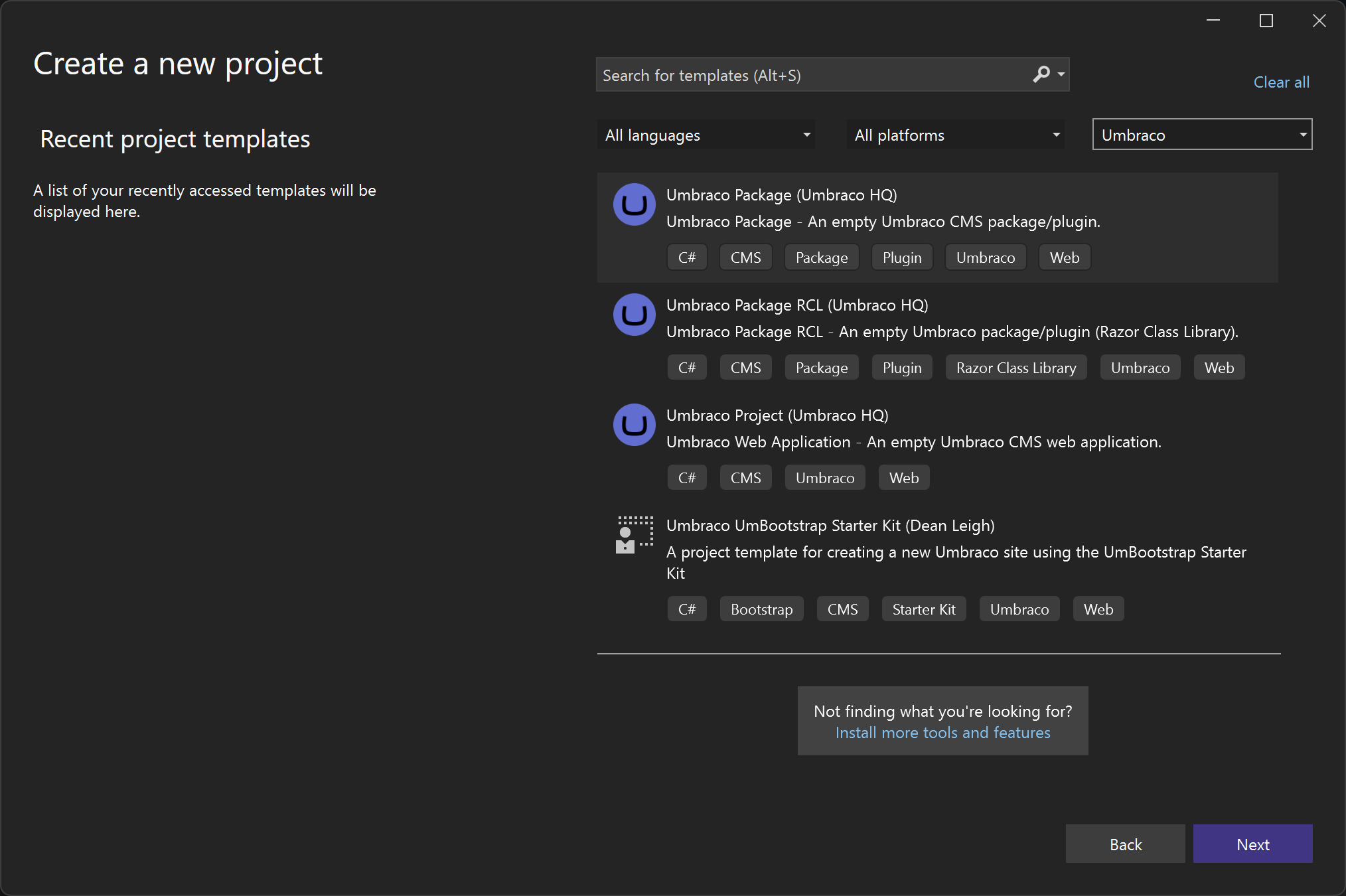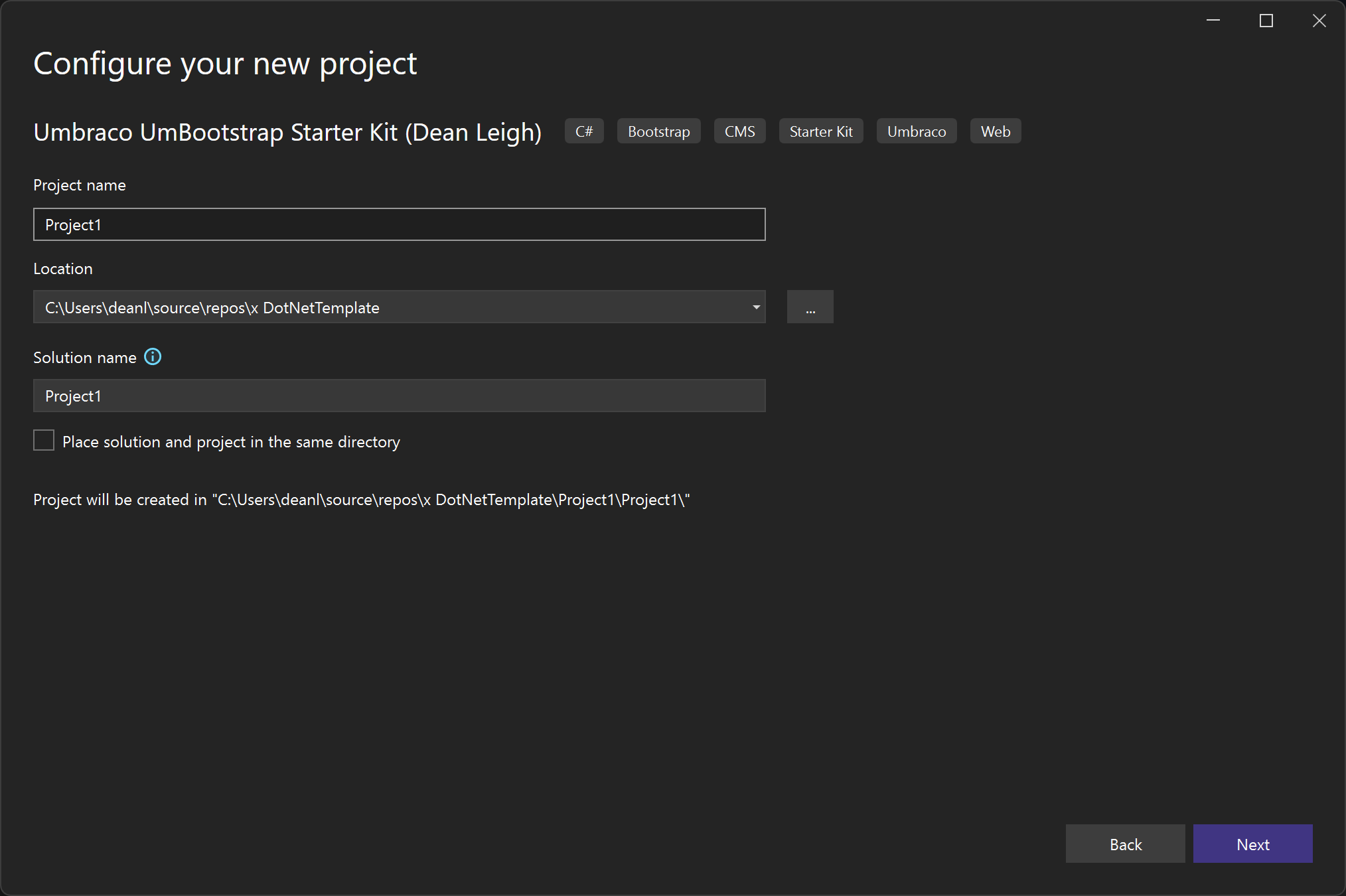UmBootstrap is an Umbraco Website Starter Kit using Bootstrap Templates and a comprehensive Component Library all available for you to use in your projects.
What makes UmBootstrap different from other starter kits is that it is not installed via a Nuget Package on top of an existing Umbraco website, it 'is' an Umbraco website on installation as a dotnet project template.
At the heart of UmBootstrap is an Umbraco website containing:
- Page layout templates
- Section layout templates
- Component templates
All of these are constructed using Umbraco doctypes and datatypes and Bootstrap HTML, CSS and JavaScript.
We welcome contributions to UmBootstrap, however Contributing to UmBootstrap requires a different process to installing UmBootstrap using the instructions intended for users.
Please refer to the following guide for instructions on how to contribute to UmBootstrap:
Warning
Pull requests will not be accepted from users who have not followed the guidelines
UmBootstrap is an Umbraco website that is installed as a dotnet project template.
There are two ways for users to install UmBootstrap:
- Using .NET CLI
- Using Visual Studio
Important
If you wish to use UmBootstrap for its intended purpose:
- You should install it using the .NET CLI or Visual Studio
- You should not use the UmBootstrap repository
To install UmBootstrap using the .NET CLI, follow these steps:
Open a command prompt and run the following command:
dotnet new install Umbraco.Community.Templates.UmBootstrap
Note
The syntax may differ depending on the version of .NET SDK you have installed. For more information, see:
To create a new UmBootstrap instance run the following command:
dotnet new umbootstrap -n MyWebsiteName
This will create a new Umbraco website with UmBootstrap already installed in a folder called MyWebsiteName.
To run the Umbraco website, navigate to the MyWebsite folder and run the following command:
dotnet run
This will start the Umbraco website on http://localhost:[port number]
To complete the Umbraco installation, open a browser and navigate to http://localhost:[port number]
This will start the Umbraco installation wizard.
Note
The Umbraco installation wizard will not start until you have run the Umbraco website for the first time.
Complete the Umbraco installation wizard
To install UmBootstrap using Visual Studio project templates, follow these steps:
This will create a new Umbraco website with UmBootstrap already installed.
UmBootstrap is designed to be used as a starter kit for building websites. It is not a theme or a package. It is a website that you can use as a starting point for your own website.
However, it is not a blank canvas. It is a fully functional website with a variety of page and section templates and a rich component library.
This is ideal if you are new to Umbraco and want to learn how to build websites using Umbraco and Bootstrap.
However, for more experienced developers, you may find that you want to remove some of the templates and components that you don't need or copy and paste the ones that you do need into your own website.



